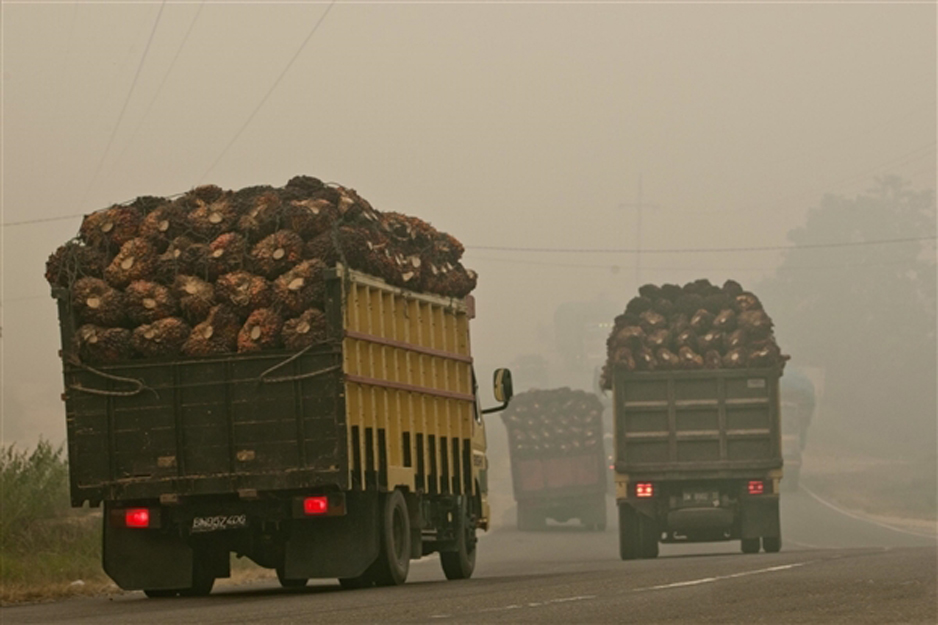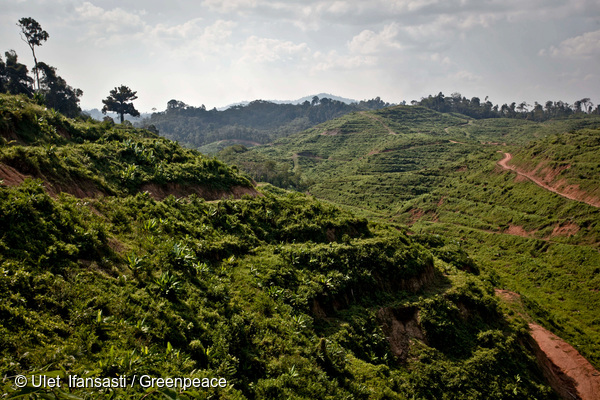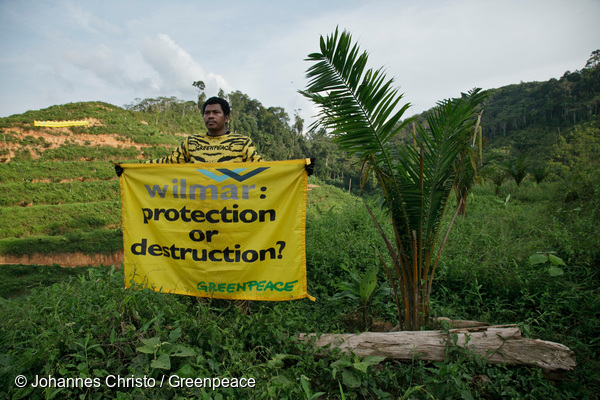The Complaints System of the Roundtable on Sustainable Palm Oil (RSPO)
by Dr kate macdonald and dr samantha balaton-Chrimes
The RSPO is a voluntary, multi-stakeholder organization, the main focus of which is standard setting and certification of sustainable palm oil production. The pervasive presence of disputes in the sector has meant that development of a complaints system has become an important element of the RSPO’s overall regulatory system.
The central decision making body within the RSPO Complaints System is the Complaints Panel. Another important channel of dispute resolution within the RSPO, which can be used in the first instance before resorting to the Panel, is the Dispute Settlement Facility, which provides a framework for facilitating dialogue and mediated negotiations between parties. Complaints regarding certification processes are referred in the first instance to the relevant accreditation or certification body. A separate pathway also exists to deal with alleged non-compliance with RSPO provisions relating to land clearance without prior High Conservation Value assessment, or adherence to Procedures for New Plantings. The RSPO’s existing complaint handling system can deal with conflict involving RSPO members, concerning any codified RSPO standards or rules.
With regard to individual remedy, there have been significant gaps in the RSPO’s capacity to facilitate the successful resolution of individual disputes. The minority of cases brought through the RSPO complaints system have been concluded on the basis of an agreed settlement or imposition of a sanction. The aim of achieving timely resolution of disputes has also encountered significant challenges, with significant delays experienced in the processing of many disputes passing through the RSPO complaints system, and a significant backlogs of cases. Nonetheless, there is evidence that RSPO processes have sometimes contributed to the management of complex disputes, via indirect effects on communication between disputing parties, or influence over the terms of dialogue and bargaining between stakeholders in accordance with RSPO standards.
With regard to prevention of recurring disputes, there is some limited evidence that the RSPO’s engagement with complaint handling processes has supported learning amongst a few more engaged member companies, as well as RSPO staff with regard to both the handling and prevention of disputes. Institutionalized processes to facilitate learning and prevention have generally been weak, and efforts to promote changes in production practices throughout the palm oil sector are impeded by challenges of managing complex and often sensitive political relationships with business, NGO, and government stakeholders.
The RSPO’s performance has been further limited by its weak capacity to perform important functions such as community outreach and capacity building (to facilitate access to the complaints system by marginalized communities), independent investigations and fact-finding activities (to manage problems of contested facts in complex disputes), and active support for monitoring and implementation of agreements. There have also been weak provisions for, and practical use of, enforcement mechanisms in the case of standards violations. The complaints system has further suffered from procedural problems, such as high levels of informality and unpredictability of certain decision making processes, a lack of independence of parts of the complaints system from the parties involved in disputes, and weak transparency of certain procedures, particularly reason-giving to stakeholders.
The report makes a number of concrete recommendations, including: Procedural reforms to strengthen transparency, consistency, integrity and independence of RSPO complaint handling processes; Provision of stronger forms of community outreach and capacity building, to enable marginalised groups to make effective use of the complaints system; A more active role for the RSPO complaints system in investigation and evidence gathering, either directly or via resourcing of independent third-party investigations; A clearer framework for assigning responsibilities within the RSPO complaints system for monitoring and implementation of agreed settlements; and Strengthened institutionalized systems to support lesson learning by RSPO members, staff, and external stakeholders both with regard to strengthening complaint handling processes, and with regard to prevention of conflict in the palm oil sector.
The executive summary of the report can be read below.
EXECUTIVE SUMMARY
The RSPO complaints system
The RSPO is a voluntary, multi-stakeholder organization, the main focus of which is standard setting and certification of sustainable palm oil production. The RSPO includes representatives from seven sectors of the palm oil industry: oil palm growers, palm oil processors or traders, consumer goods manufacturers, retailers, banks and investors, environmental or nature conservation NGOs, and social or developmental NGOs. The pervasive presence of disputes in the sector has meant that development of a complaints system has become an important element of the RSPO’s overall regulatory system.
The central decision making body within the Complaints System is the Complaints Panel. Another important channel of dispute resolution within the RSPO, which can be used in the first instance before resorting to the Panel, is the Dispute Settlement Facility, which provides a framework for facilitating dialogue and mediated negotiations between parties. Complaints regarding certification processes are referred in the first instance to the relevant accreditation or certification body. A separate pathway also exists to deal with alleged non-compliance with RSPO provisions relating to land clearance without prior High Conservation Value assessment, or adherence to Procedures for New Plantings.
The RSPO’s existing complaint handling system can deal with conflict involving RSPO members, concerning any codified RSPO standards or rules. Members of the RSPO are governed by a Code of Conduct, which applies to all members. In addition the RSPO has developed a set of production standards for assessing the performance of palm oil production—the key instrument of which is the RSPO Principles and Criteria (P&C) for Sustainable Palm Oil, which apply to certified production facilities. Despite the breadth of the possible grounds for bringing complaints through the RSPO complaints system, in practice the majority (about three quarters) of the cases handled by the complaints system to date have related to land disputes—including disputes about the Free, Prior and Informed Consent (FPIC) of communities in land acquisition processes, and disputes concerning the clearing of High Conservation Value (HCV) land—that is, land identified as containing natural habitat of particularly high biological, ecological, social or cultural value.
Formal barriers to use of the system are low. Both members and non-members can use the complaints system; there are no formal evidentiary requirements to bring a complaint; and there is no specific time limit on bringing a complaint. Nonetheless, the onus of demonstrating a case at the initial stage of making a complaint in writing rests on the complainant, and there is a general expectation that attempts at bilateral dialogue and negotiations should be exhausted before a formal complaint is lodged with the RSPO.
Remedies for grievances in cases where an adjudicative process via the Complaints Panel is used are at the discretion of the Complaints Panel. The most serious penalty available is suspension or revocation of RSPO membership. The RSPO may also suspend a company’s certification certificates. These penalties are rarely applied; more commonly dispute resolution processes focus on trying to establish a negotiated settlement between parties.
The RSPO complaints system has undergone significant recent changes, and further reforms are currently being considered. At the time of this report’s writing (in June 2016), draft proposals for a new Integrated Complaint System and Independent Appeals System for the RSPO were undergoing public consultation. If implemented, these proposed reforms would entail some significant changes, particularly with regard to the independence of adjudications, appeals and investigation of disputed facts, and institutional processes to support strengthened transparency and public communications around both individual disputes and the complaints system as a whole. Such proposals may also have implications for the burdens of proof and in some cases also financial burdens faced by prospective complainants.
Past performance of the complaints system
In view of the ongoing changes to the RSPO complaints system, analysis in this report focuses on past performance—though we comment on proposed future reforms as relevant to our discussion of policy implications. We assess past performance of the RSPO complaints system with regard to: a) the securing of appropriate remedies for parties to individual grievances; and b) contributions to preventing recurring grievances.
With regard to individual remedy, there have been significant gaps in the RSPO’s capacity to facilitate the successful resolution of individual disputes. The minority of cases brought through the RSPO complaints system have been concluded on the basis of an agreed settlement or imposition of a sanction. The aim of achieving timely resolution of disputes has also encountered significant challenges, with significant delays experienced in the processing of many disputes passing through the RSPO complaints system, and a significant backlogs of cases. Nonetheless, there is evidence that RSPO processes have sometimes contributed to the management of complex disputes, via indirect effects on communication between disputing parties, or influence over the terms of dialogue and bargaining between stakeholders in accordance with RSPO standards.
With regard to prevention of recurring disputes, there is some limited evidence that the RSPO’s engagement with complaint handing processes has supported learning amongst a few more engaged member companies, as well as RSPO staff with regard to both the handling and prevention of disputes. Such contributions are mainly evident with regard to a narrow set of issues, such as the prevention of clearing of High Conservation Value land, and support for Free, Prior, and Informed Consent (FPIC) of communities in the case of new land clearing activities. Institutionalized processes to facilitate learning and prevention have generally been weak, and efforts to promote changes in production practices throughout the palm oil sector are impeded by challenges of managing complex and often sensitive political relationships with business, NGO, and government stakeholders.
The RSPO’s performance has been further limited by its weak capacity to perform important functions such as community outreach and capacity building (to facilitate access to the complaints system by marginalized communities), independent investigations and fact-finding activities (to manage problems of contested facts in complex disputes), and active support for monitoring and implementation of agreements. There have also been weak provisions for, and practical use of, enforcement mechanisms in the case of standards violations. The complaints system has further suffered from procedural problems, such as high levels of informality and unpredictability of certain decision making processes, a lack of independence of parts of the complaints system from the parties involved in disputes, and weak transparency of certain procedures, particularly reason-giving to stakeholders.
Lessons for institutional reform of the RSPO complaint system
The above findings regarding the RSPO complaint system’s performance of specific functions generate some quite direct implications for institutional reform. Specifically, our findings suggest a need for:
· Procedural reforms to strengthen transparency, consistency, integrity and independence of RSPO complaint handling processes.
· Provision of stronger forms of community outreach and capacity building, to enable marginalised groups to make effective use of the complaints system.
· A more active role for the RSPO complaints system in investigation and evidence gathering, either directly or via resourcing of independent third-party investigations.
· A clearer framework for assigning responsibilities within the RSPO complaints system for monitoring and implementation of agreed settlements.
· Strengthened institutionalized systems to support lesson learning by RSPO members, staff, and external stakeholders both with regard to strengthening complaint handing processes, and with regard to prevention of conflict in the palm oil sector.
Some other weaknesses of the RSPO’s past performance—particularly with regard to resource shortfalls and weak enforcement capacity—were shown to result from external constraints, making them more difficult to address via internal institutional reforms to the RSPO complaint system. Our analysis suggests nonetheless that recognizing such structural constraints has practical implications: for the operation of the RSPO system; for external stakeholders or supporters of the system; and for those considering using the system to assist resolution of complaints.
For the RSPO’s own operations and strategies, recognizing structural capacity constraints implies the need for explicit focus on outward-looking and collaborative strategies, involving more active efforts to negotiate shared responsibilities for prevention and problem-solving with actors who possess resources, skills or leverage that RSPO processes lack—including other companies, NGOs, and governments.
For external actors seeking to strengthen RSPO systems:
· The RSPO’s authority to place more demanding obligations on its members depends in part on incentives for companies to remain within the RSPO. These could be strengthened via measures such as home country regulations on labelling of sustainable palm oil, or more demanding policies of large purchasers or financiers of palm oil with regard to sustainability standards—though any such policies would be likely to be opposed by palm oil producer associations and would need to carefully manage potential political resistance in producing countries.
· The RSPO’s capacity to invest more resources in activities such as investigations and community outreach depends in part on its capacity to secure a larger resource base. However, the extent of such support depends also on the extent to which political decisions internal to the organization prioritize such activities. External support from members, buyers and donors, in the form of membership fees, payments from sustainable palm oil certificates, and additional sources of funds such as external project funding is critical, but provision of such support should be more closely tied to prioritization of activities of these kinds.
· The RSPO’s capacity to support prevention of recurring conflict via influencing policy and practice in the palm oil sector as a whole depends in part on the willingness of non-member companies and government agencies in Indonesia and Malaysia to accept the legitimacy of the RSPO as a voice in national and sub-national policy debates. Lack of support for RSPO standards by powerful local actors, particularly agencies of national governments in key producing countries, can work against RSPO rules and procedures in significant ways.
For potential users of the RSPO complaints system, communities considering using the RSPO complaints system—particularly to deal with complex disputes—should be aware of the importance of seeking support from organisations familiar with RSPO processes, and should be prepared to undertake lengthy processes prior to achieving a resolution. Depending on the issues being contested in a given complaint, the forms of evidence available, and the parties involved, other available avenues for pursuing remedy (for example via complaints to local governments, courts, or by working with advocacy NGOs to place direct pressure on target companies), should also be considered as possible means of seeking remedy—instead of or in conjunction with formal RSPO processes.
Broader lessons regarding voluntary multi-stakeholder complaint systems
As a voluntary, multi-stakeholder initiative, the RSPO is one example of a type of complaint-handling system that is used in many countries and economic sectors around the world as a way of facilitating access to remedy for communities whose human rights are affected by transnational business activity. Analysis of its strengths and weaknesses thus generates broader insights regarding the potential and limits of multi-stakeholder initiatives as means of providing remedy for communities.
Locating dispute handling within a multi-stakeholder network has a number of potential benefits. Multi-stakeholder processes can provide useful forums for peer accountability, capacity building and learning about improved approaches to handling community disputes. Such a forum can also support processes of communication and dialogue, between parties to disputes, other companies, and other communities and NGOs. Multi-stakeholder forums also have the potential to provide a focal point for development of outreach and capacity building at community level, and to support ongoing processes of monitoring and implementation of agreed settlements.
However, our analysis also highlights some significant structural constraints facing voluntary multi-stakeholder organisations like the RSPO. Distinctive challenges can include:
· Challenges of establishing independence from the interests of influential members;
· Challenges of strengthening enforcement, as the motivation of disputing parties to adhere to a multi-stakeholder body’s processes and decisions is closely linked to their overall incentives to remain within the organisation.
· Challenges of securing sufficient financial and human resources to facilitate effective institutional functioning, particularly in relation to resource-intensive activities such as community outreach, capacity building, investigation and monitoring.
· Challenges of establishing legitimacy of the organization’s voice within broader policy debates oriented towards preventing recurring forms of grievance.
Complaints systems located within voluntary multi-stakeholder initiatives of this kind therefore cannot ever be understood as offering substitutes for alternative state and non-state complaint handling and governance processes. On the contrary, they are often at their most productive when they interact with, and enhance the capacities of, governments, NGOs, communities, and companies—facilitating new forms of collaboration, and assisting the development of new coalitions inside and outside of the state and private sector to foster constructive dialogue and ongoing behavioural change in support of human rights.











